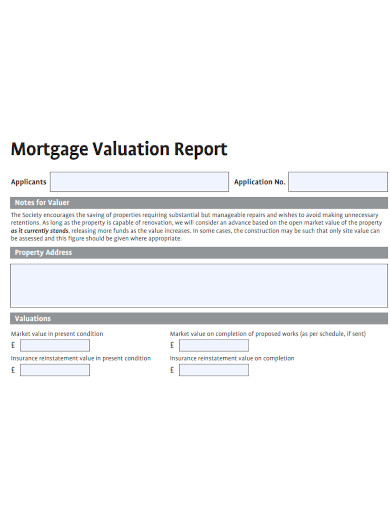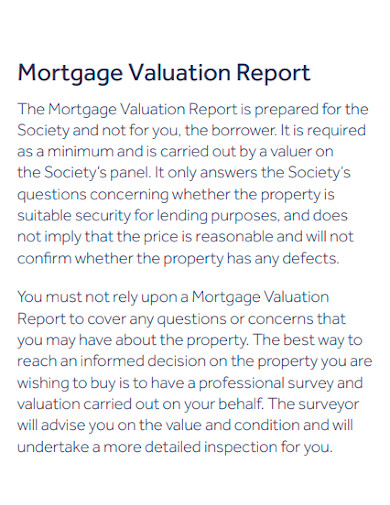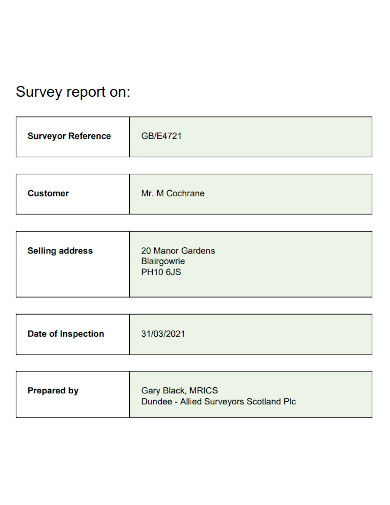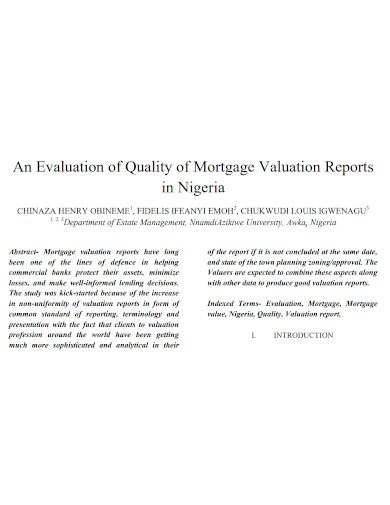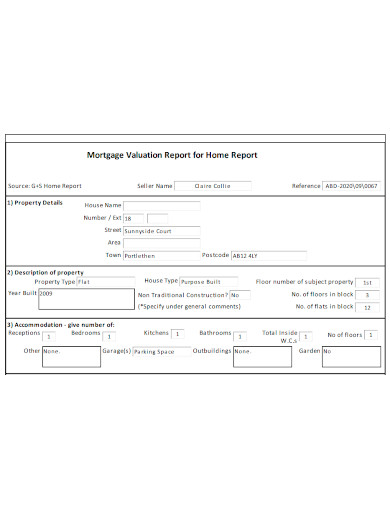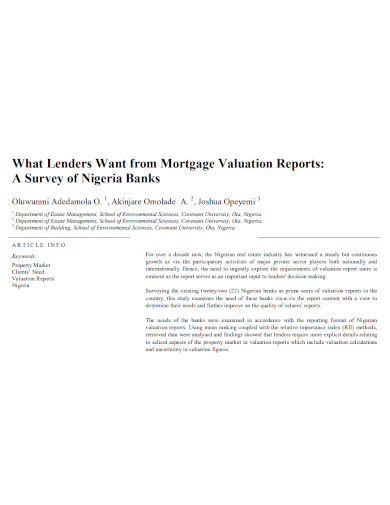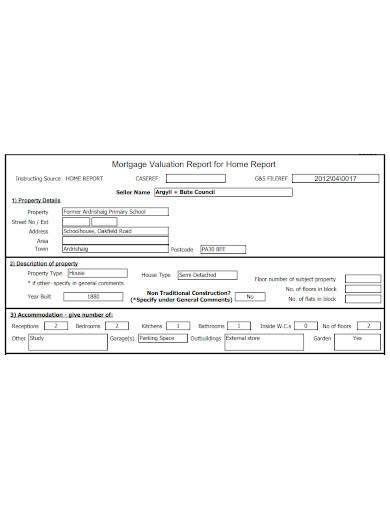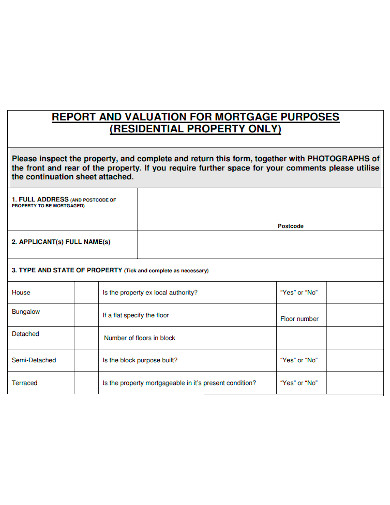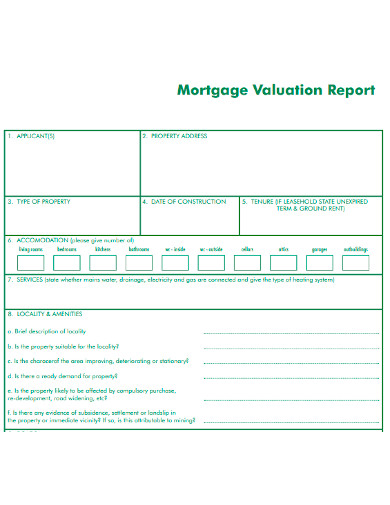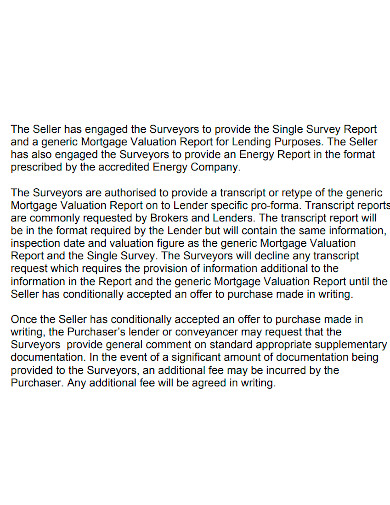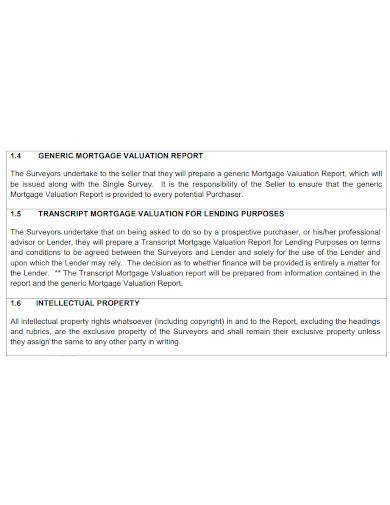For the most part, business owners have a number in mind that they wish to stick to when it comes to establishing the worth of their organization. A widespread misunderstanding is that the value should be equal to a multiple of earnings or annual sales, which is not the case at all. As opposed to this technique, which has a poor track record of accuracy and is unlikely to remain valid if the company is sold or becomes entangled in a legal battle, An accurate and acceptable company valuation requires not only precise and appropriate calculations, but also the ability to defend that value in the event that it is contested by offering a clear and succinct explanation to support the findings reached.
A valuation report or a valuation is a professional assessment of the market value of a property completed by a certified valuer and is used in real estate transactions. The report considers the general condition of the home (as observed during a visit), as well as the home’s recent and relevant sales history, as well as other pertinent market information. Before you start writing your own valuation report, feel free to look through the mortgage valuation report samples that we have provided for you further down on this page. After you have been familiar with the document, its appearance, and functionality, you may use these samples as guidelines or even as templates to aid you throughout the entire writing process.
10+ Mortgage Valuation Report Samples
1. Mortgage Valuation Report Sample
2. Printable Mortgage Valuation Report
3. Mortgage Valuation Survey Report
4. Standard Mortgage Valuation Report
5. General Mortgage Valuation Report
6. Mortgage Valuation Report Format
7. Formal Mortgage Valuation Report
8. Editable Mortgage Valuation Report
9. Professional Mortgage Valuation Report
10. Basic Mortgage Valuation Report
11. Generic Mortgage Valuation Report
What Is a Mortgage Valuation Report?
Business valuation reports, according to its definition, are attempts to accurately document and analyze the value of a company or a group of assets while taking into consideration all relevant market, industrial, and economic aspects. The goal of the evaluation will determine the standard of value to be employed, as well as the valuation approach and assumptions that will be used in generating the assessment, due to the nature of the appraisal. A company’s evaluation is comprised of a number of components, each of which has an impact on the final outcome. The standard of value to be used will be determined by the reason for which the valuation is being performed. If we consider a dissolution dispute, some states utilize fair market value standards, whereas others use fair value, which is a legal standard that is not dependent on market conditions at the time of the dissolution dispute.
How To Write a Mortgage Valuation Report
It is possible to do a business valuation research to supply the owner of a firm with a variety of data and numbers about the company’s true worth or value, including market competitiveness, asset prices, and income values. The report takes into account market competition, asset values, and income values, among other things. Each and every business owner should have access to this type of information. To provide an indication of the organization’s success, it is recommended that a business valuation be performed at least once per year. Listed below is a list of the most frequently encountered components of a well-written business valuation report:
- Assignment Identification
There should be a clear indication of the report’s intended use, such as as a gift or estate planning document, or as a buy-sell agreement, financial statement, or litigation support report, among others. The purpose of the transaction will decide the standard of value to be used, which may be fair market value, fair value, strategic value, or liquidation value, among other things. Simply stated, the criterion of value should be expressed in simple terms. - Business Description
When it comes to this area, the valuation specialist should be able to effectively explain their understanding of the business. Information on the nature of the company’s operations, as well as its strengths and weaknesses; opportunities and threats; as well as any other relevant information should be included in this section. The likelihood of errors or omissions occurring increases if the expert does not have a thorough understanding of the company. It is possible that one or both of these possibilities will compromise the credibility of the report. - Industry and Economic Trends
A company’s stock value is affected by external factors such as future cash flow and risk perceptions, which in turn are affected by the value of the company’s shares. It is critical that the expert’s knowledge of the environment in which the organization is currently operating is supported in this section of the document. - Financial Analysis
Performance in the past can be a valuable source of information regarding future cash flow prospects. It has an impact on the value of a company depending on how well (or poorly) it has performed in the past – or how well (or poorly) it has performed in relation to other companies in the same industry. In order to arrive at “normalized” cash flows, it is frequently required to make changes to a company’s financial statements in order to account for discretionary or nonrecurring items, as well as unique accounting techniques, that are not reflected in the company’s financial statements. It is necessary to include a prognosis of future operations, or at the very least a discussion of the company’s aspirations and expectations for the future, in order to correctly assess the future. - Valuation Methods
Included in this section should be a detailed description of the procedures that were implemented at the subject company, as well as the reasons for their implementation. The significance of this section cannot be stressed because different methods or combinations of methods may be used in the same situation on a frequent basis, which makes this section extremely important. This section should contain detailed explanations of the computations that were used to arrive at the appraiser’s conclusions. - Discounts and Other Considerations
It is likely that extra discounts, such as voting, important person, and obstruction discounts, will be applied in addition to the standard discounts. A discussion on whether discounts are justified and why they are appropriate should take place in this section of the value report. It should include actual data to back up the discount rates that have been selected, rather than just hypothetical data. Furthermore, comprehensive reports will provide values derived from nontraditional sources of valuation evidence in addition to traditional sources of valuation evidence such as previous transactions and offers, loan applications, previous appraisal reports, and rule-of-thumb, which will be reconciled against the values derived under the appraiser’s methodology.
FAQs
Who gives a valuation report?
It is the borrower who is responsible for the expense of a mortgage valuation assessment when the lender hires one to determine the value of a property at a certain moment in time as part of the mortgage application process. Buyers should be aware that whatever information they obtain from lenders is done so out of the kindness of their hearts and that they have no rights to the information contained within the report.
How long does it take to get valuation?
It normally takes one week to receive a mortgage offer from a lender after a property valuation has been completed and approved.
What makes a good valuation report?
To be more specific, this should include information regarding the nature of the company’s operations, such as its strengths, weaknesses, opportunities, and threats, as well as financial information. It is necessary to include a prognosis of future operations, or at the very least a discussion of the company’s aspirations and expectations for the future, in order to correctly assess the future.
It is important to both the firm and the employees to have an accomplishment report since it keeps both parties informed of what is truly going on in the office. In a comprehensive report provided by the system, each employee’s contributions and productivity during the week, including overtime, are detailed. If you want to produce a near-perfect electronic achievement report, follow the guidelines in the templates and suggestions offered above.
Related Posts
17+ Sample Visit Reports
FREE 17+ Sample Visit Reports
FREE 14+ Sample Marketing Reports
FREE 14+ Sample Incident Reports
FREE 13+ Sample Service Reports
FREE 11+ Risk Management Report Samples
FREE 10+ Vehicle Report Samples
FREE Assignment of Intellectual Property Rights
FREE 30+ Sample Business Reports
FREE 29+ Sample Business Report Templates
FREE 16+ Sample Audit Reports
FREE 12+ Sample Home Inspection Reports
FREE 10+ School Visit Report Samples
FREE 10+ Analytical Report Samples
FREE 3+ Private Equity Risk Management Samples

